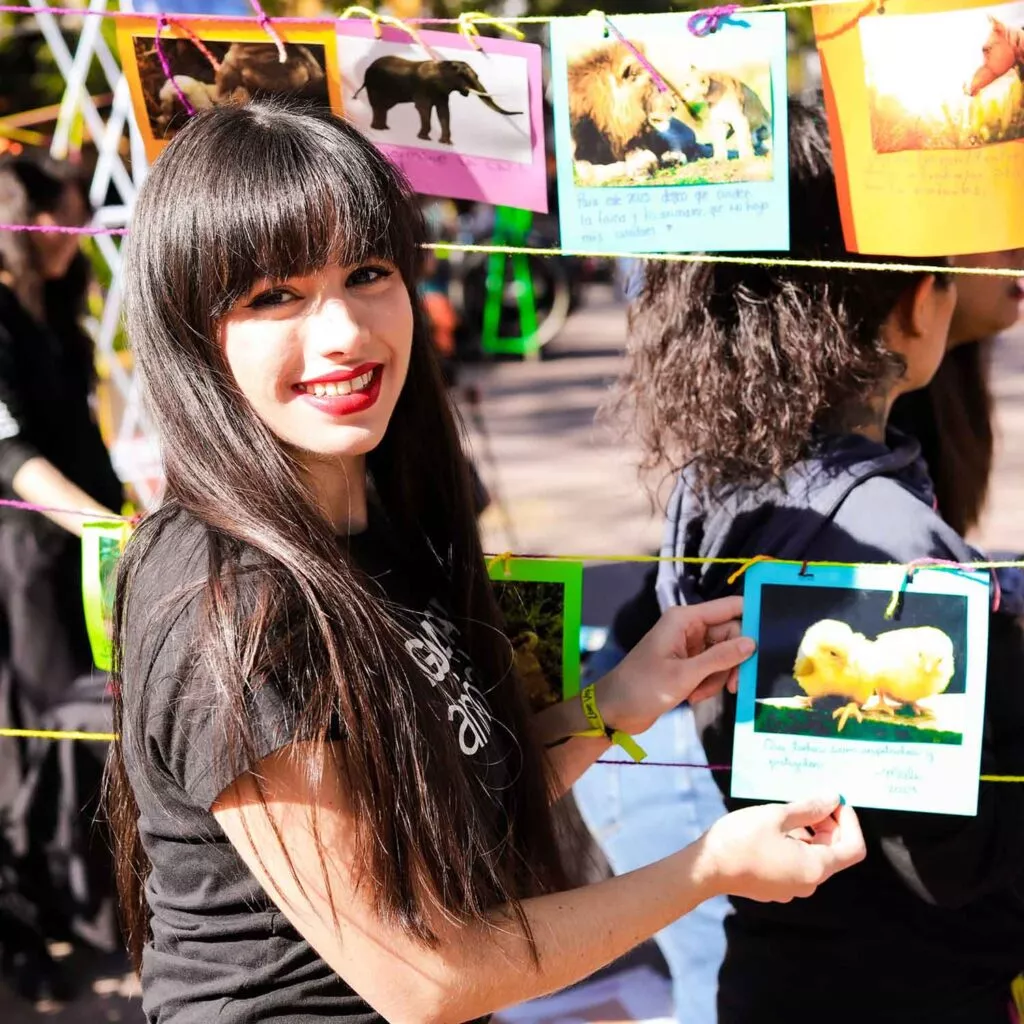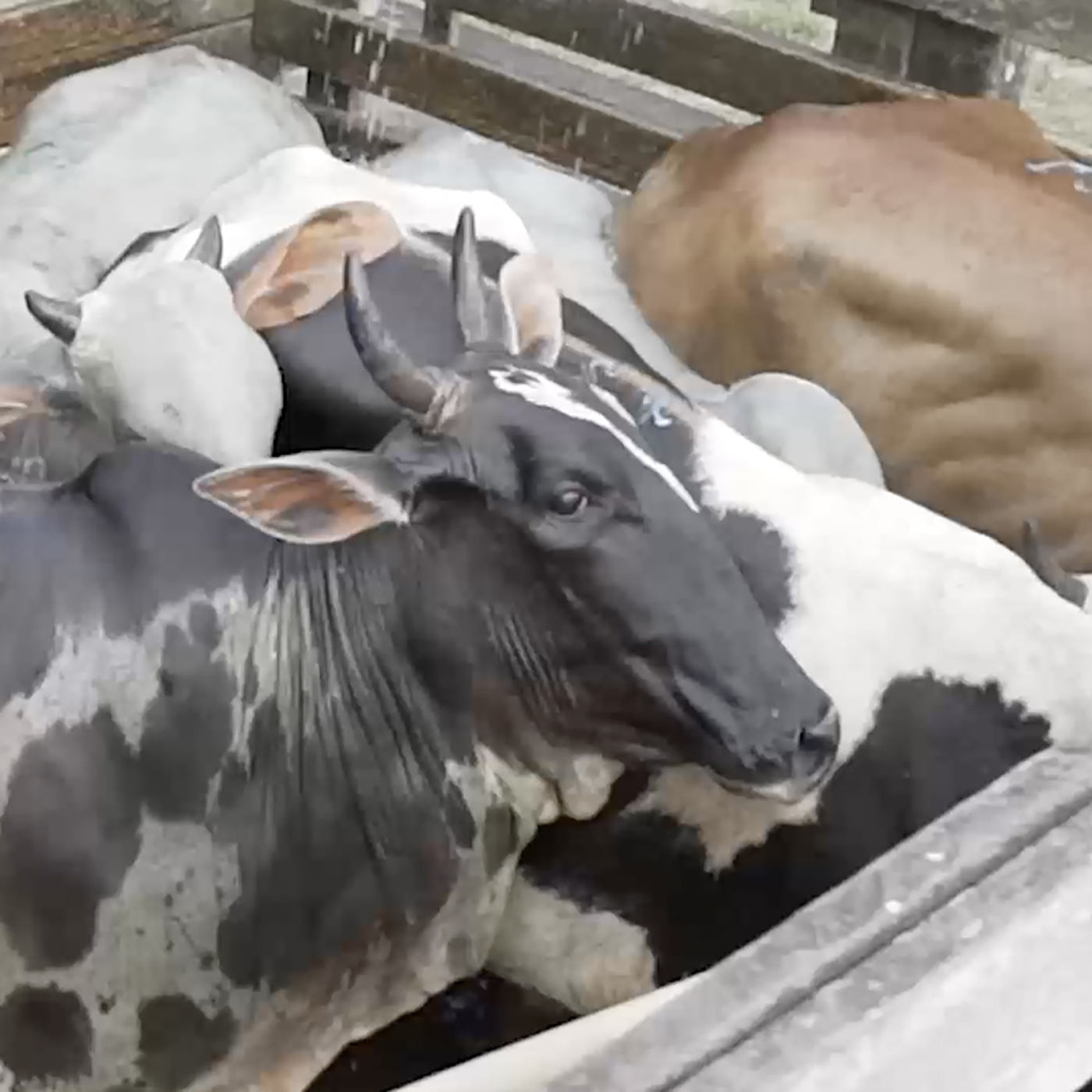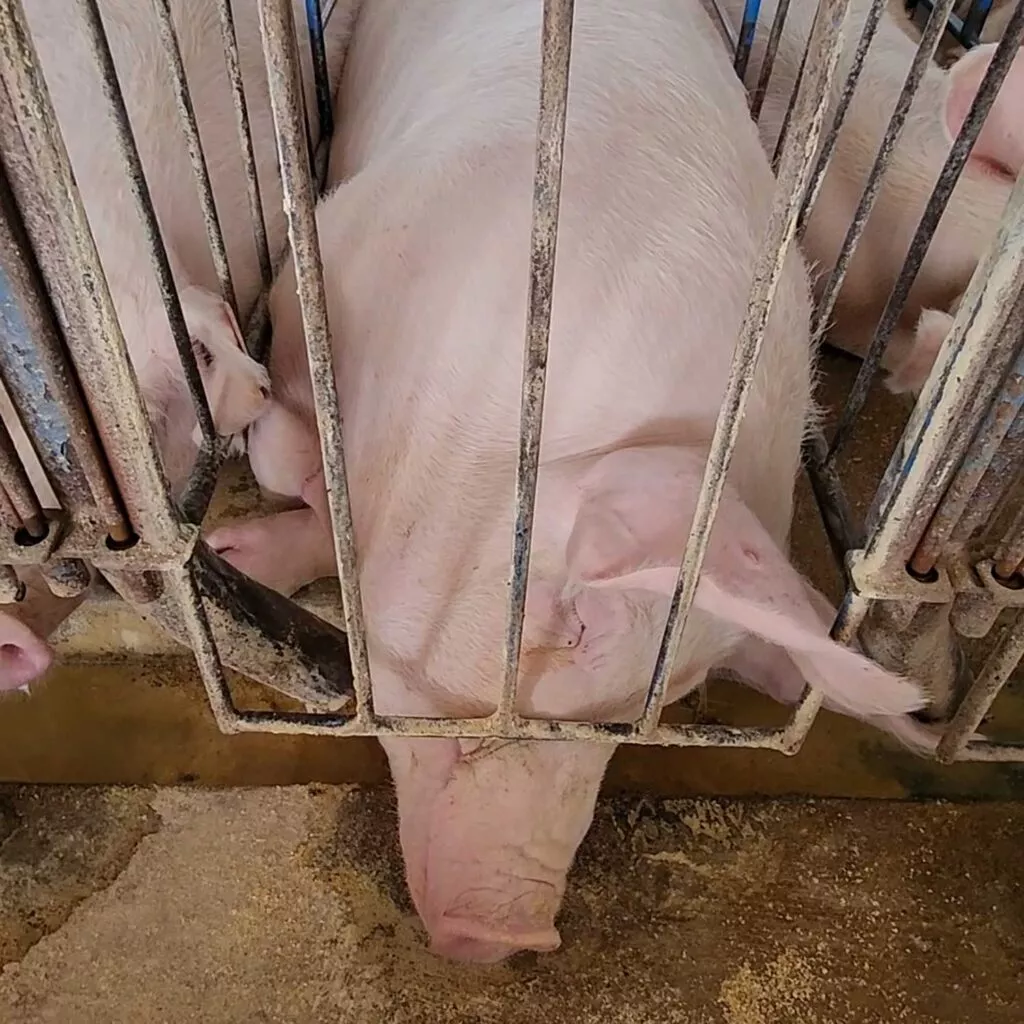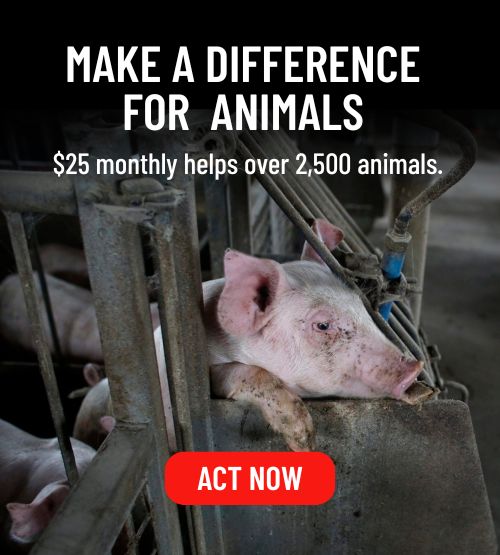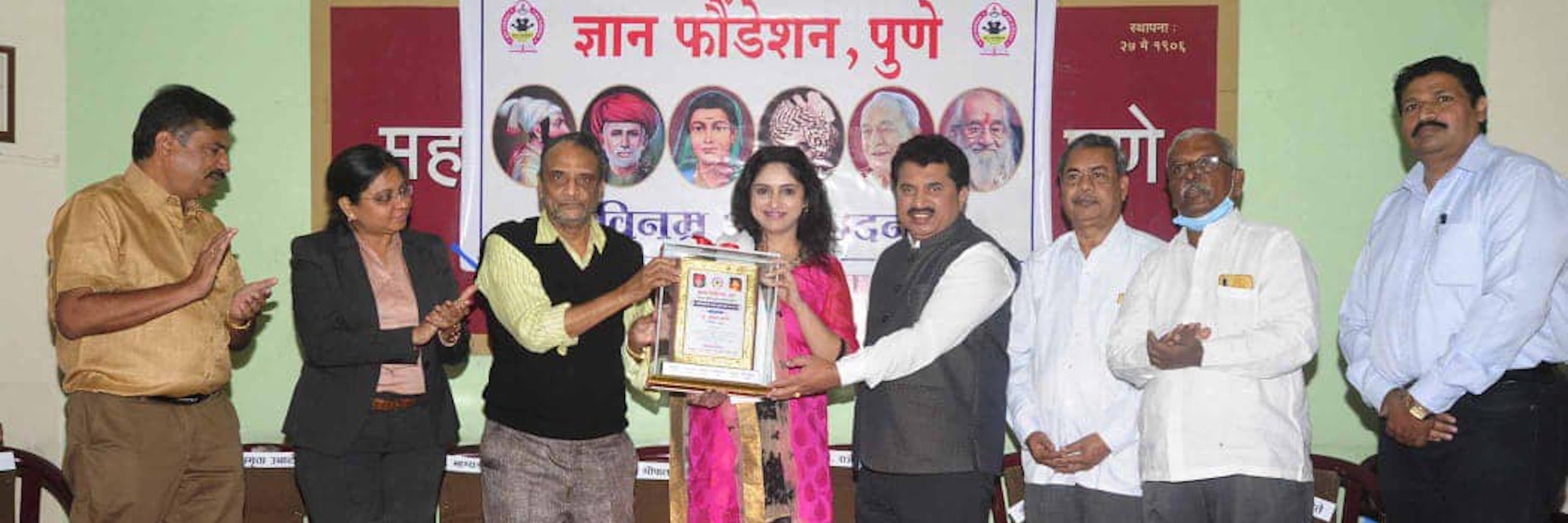
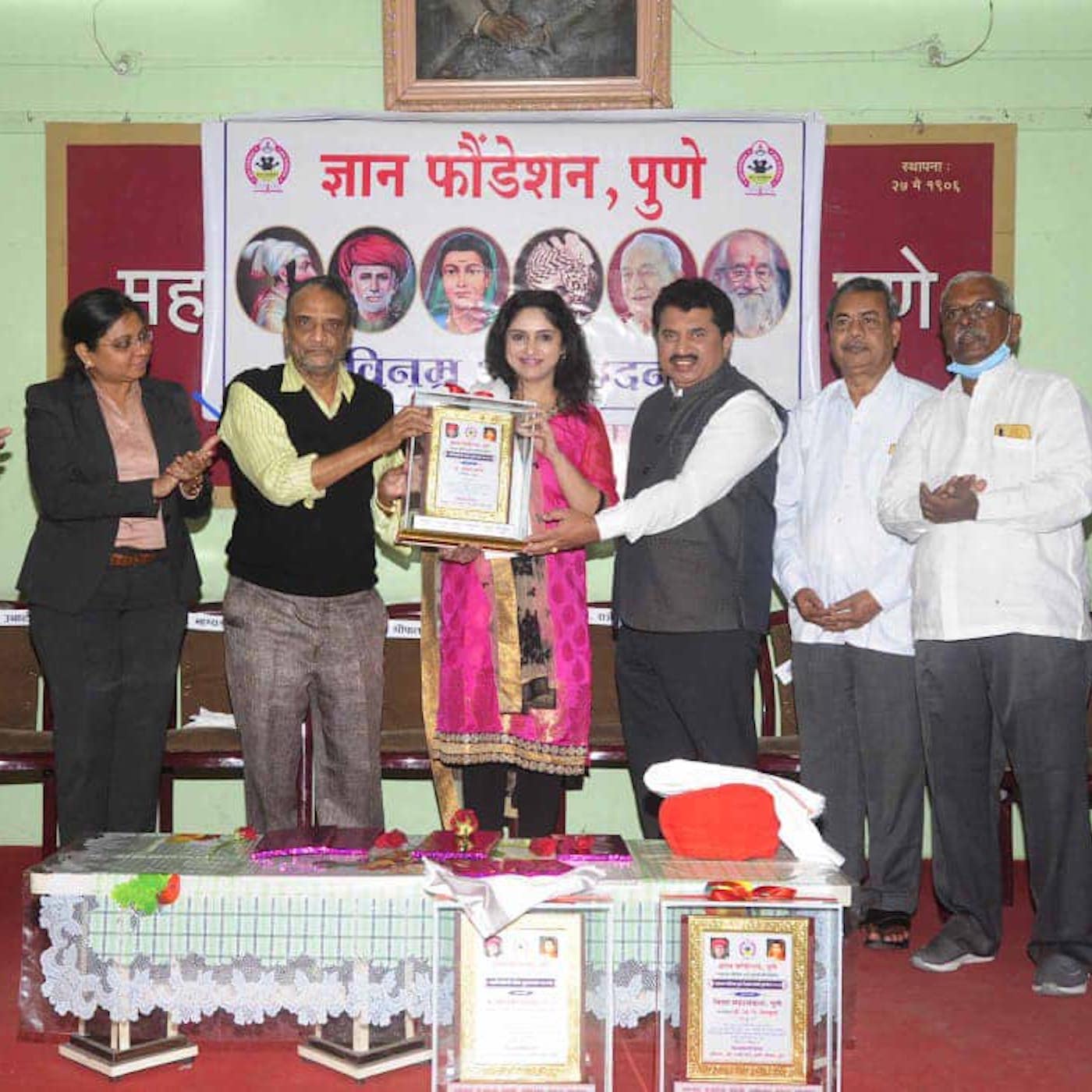
How Animal Equality in India is Creating Change for Animals
In 2011, a meeting was held between the founders of Animal Equality – Sharon Núñez, Jose Valle and Javier Moreno – and a very determined activist, Amruta Ubale. Shortly after, Animal Equality India was born.
Amruta and her team got started immediately. In their first year, with few resources at their disposal, they organised their first campaign to ban bull performances which included events like bullock cart races and bull ‘taming’, practices that cause immense suffering to animals simply for entertainment.
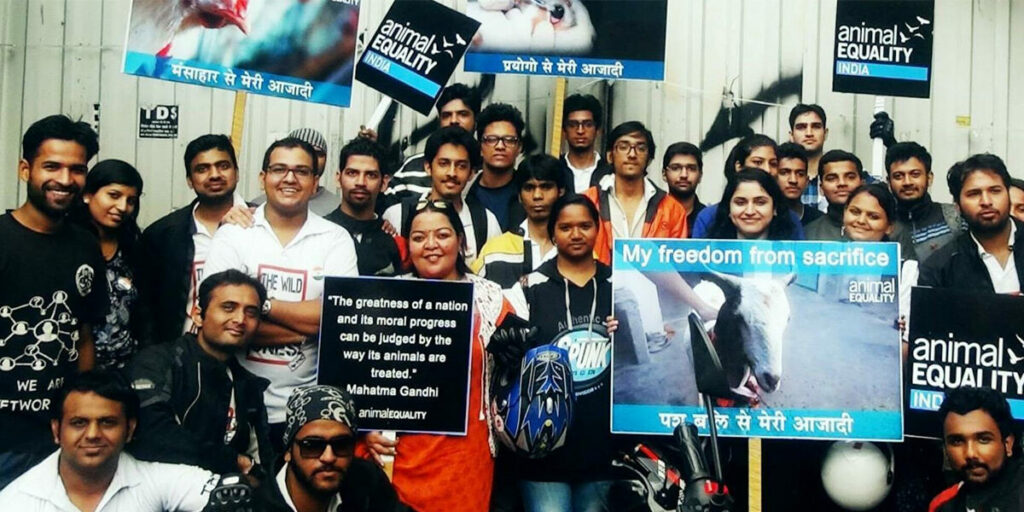
Given that these practices violated national animal welfare laws, the Supreme Court of India explicitly banned them thanks in large part to the pressure created by Animal Equality India.
Since then, Animal Equality India has achieved success after success – including a ban on the importation of foie gras – and has made great strides to stop the horrors of the Gadhimai festival, one of the largest animal sacrifices in the world.
RESULTS IN INDIA
Animal Equality India has been fighting for animals to be respected and protected from its very beginning.
Over the years, we have not only investigated factory farms and slaughterhouses to gather evidence first-hand, we have also done a lot of political lobbying and legal action in defence of animals. Our successes have established Animal Equality as an authority on the protection of animals.
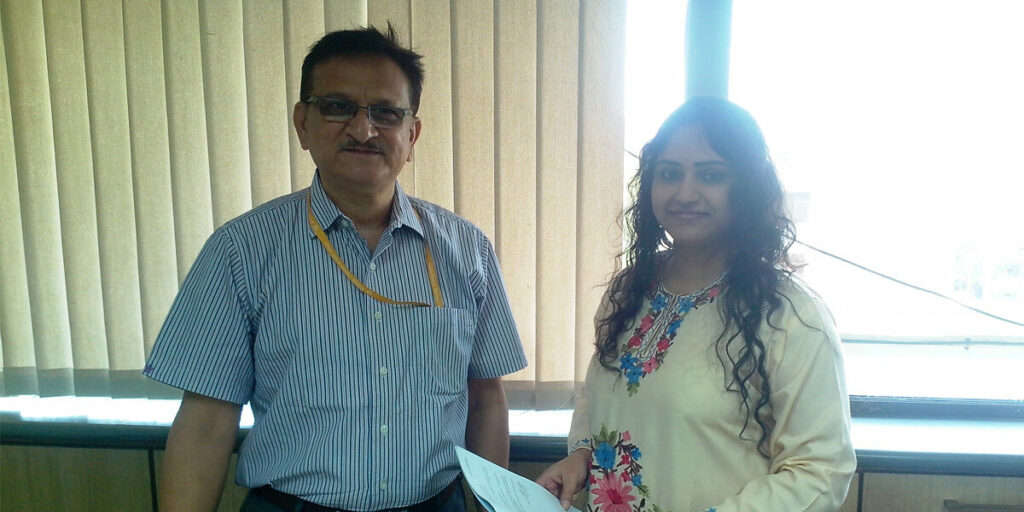
STOP BULL RACES
In 2014, the Indian Supreme Court outlawed bull cart races including the national Jallikattu festival, in which young bulls were terrorised and chased by crowds. Although unfortunately the ban on Jallikattu was lifted in 2017, the ban on other bull performances like bullock cart races remains to this day.
During our investigations, our team witnessed bulls being beaten, whipped, electrocuted, force-fed alcohol, and prodded with nails and sharp instruments.
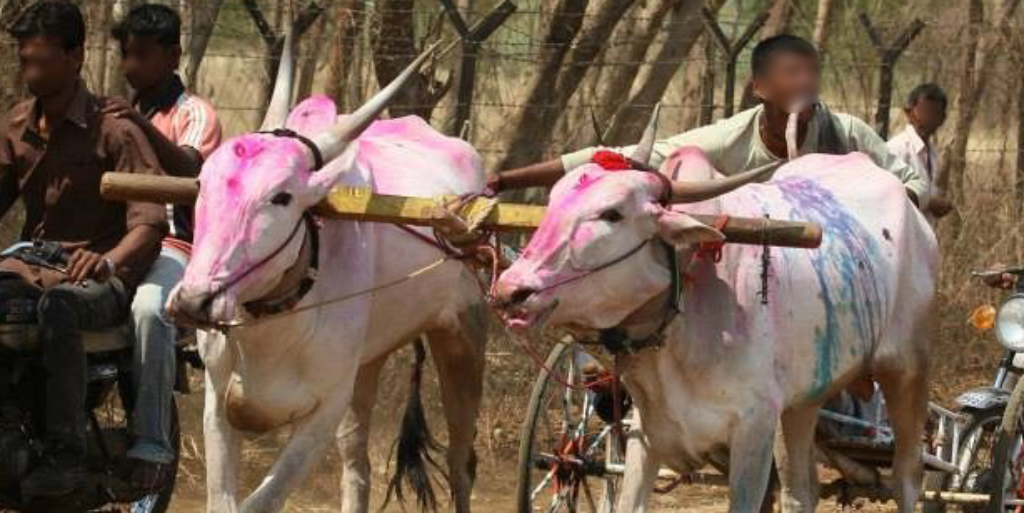
The historic decision to ban bull cart races came as a direct consequence of our investigations and the complaints we filed about the violence towards bulls used in racing. It took great teamwork and collaboration with lawyers and other associations to put an end to these competitions.
This ban is a milestone for animal rights in India. It indicates that we are making significant strides in our society, and that some traditions cannot be considered more important than the suffering inflicted on animals.
Amruta Ubale, Senior Director of Public Affairs, Animal Equality India
THE FOIE GRAS BAN
In 2014, India became the first country in the world to ban the importation of foie gras nationwide.
This was possible in part thanks to Animal Equality’s international work. Our investigations in France and Spain revealed that one of the most notorious foie gras distributors investigated was exporting this cruel product to India.
Foie gras is produced by force-feeding ducks and geese until their livers become diseased and swollen to an unnaturally large size.
Animal Equality raised this issue with the Indian authorities, making a formal request to the Minister of Commerce to ban the importation of foie gras.
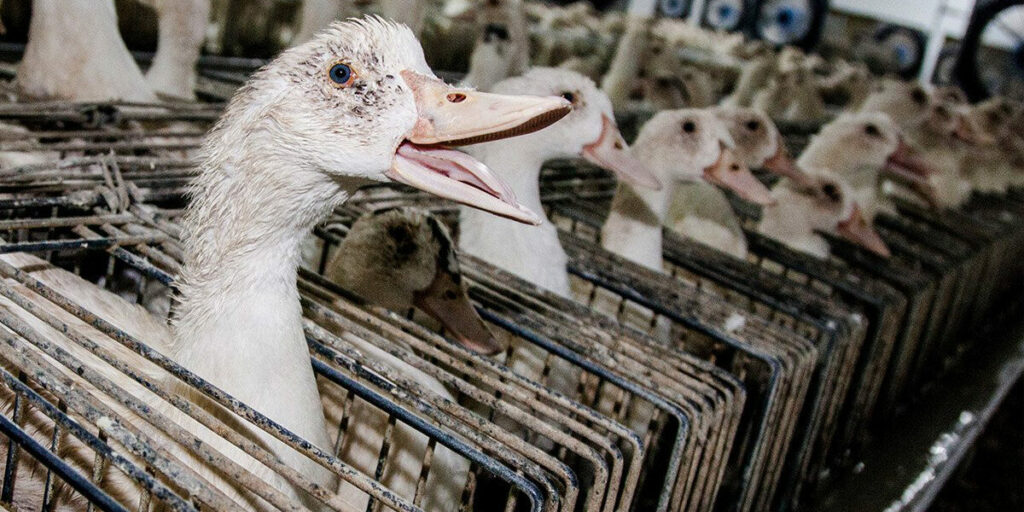
We presented the Indian Government with an in-depth report containing data, photos and video evidence, and references such as reports from the United Nations and International Scientific Committees for Animal Health and Welfare which detail that foie gras production causes immense suffering.
Following these meetings, the Indian foreign minister put in place a ban on the importation of foie gras into India.
WHAT WE ACHIEVED AT GADHIMAI
In 2014, Animal Equality launched a global campaign to end the animal slaughter that takes place during the Gadhimai Festival in Nepal. The festival is held every five years and is infamously known as the world’s largest animal sacrifice.
Animal Equality’s team travelled to the festival to document the slaughter. They witnessed scenes of unimaginable suffering, with thousands of animals slaughtered with knives, axes, and machetes.
After extensive discussions with the Indian Government, a new directive was adopted to ban the transport of animals from India to Nepal during the festival.
Thanks to our campaign and the incredible collaborative effort put together with local activists, there was a 70% reduction in the number of large animals sacrificed in 2014 compared to 2009, when about 200,000 animals were sacrificed.
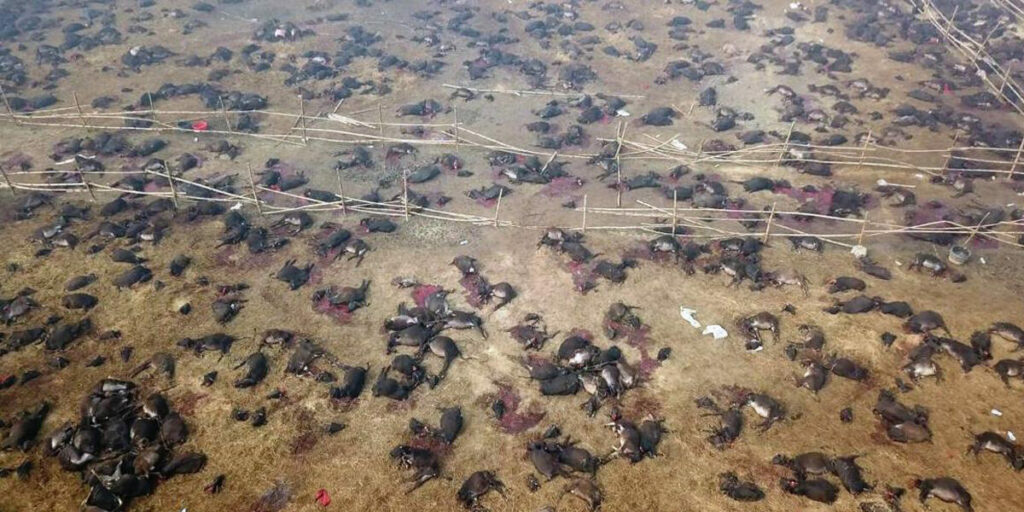
Our work continued in 2019, when we launched a new petition calling on the Nepalese Government to ban animal sacrifices once and for all.
Animal Equality decided to propose a non-violent alternative to the sacrificial celebration. In collaboration with the Nepalese Red Cross, we organised a blood donation campaign, during which worshippers could donate their own blood to pay respect to the goddess instead of sacrificing innocent lives.
This form of sacrifice will take away the cruel and negative image of the Gadhimai sacrificial festival. We urge the Nepalese government and the temple committee to support our action and encourage worshippers to donate blood instead of shedding the blood of innocent sentient beings like those animals who are forced to endure such terrible suffering every five years.
Amruta Ubale, Senior Director of Public Affairs, Animal Equality India
Although the number of animals involved in this festival is still tragic, we are heartened to know that our efforts have made a difference for so many animals and will continue to do so.
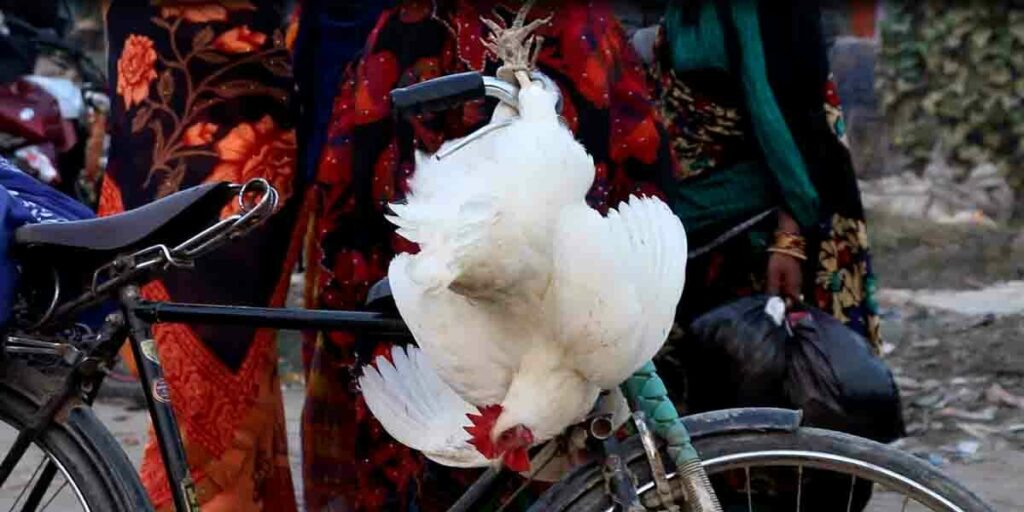
BUT THERE IS STILL MUCH WORK TO BE DONE
Even though there has been important steps forward for animals in India, there is still much to be done.
Historically, India has had a large vegetarian population, but the eating habits of its citizens are becoming more and more similar to those of countries in the Global North, with meat consumption on the rise.
What does this mean for animals? As meat consumption increases, more animals are being killed, and they often suffer enormously in terrible conditions. One of the largest increases has been the amount of chickens raised for human consumption. Our team in India has conducted a number of investigations into factory farms in recent years to show what is happening.
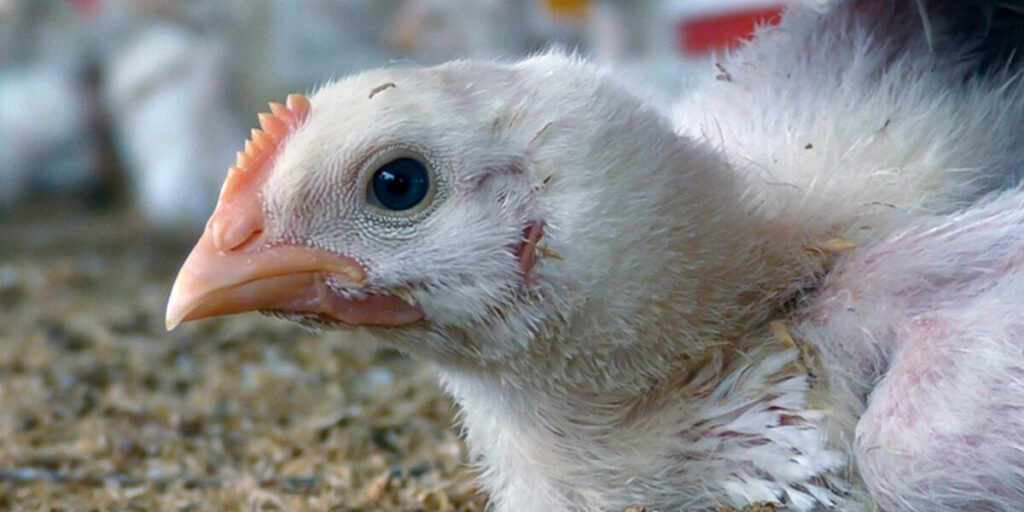
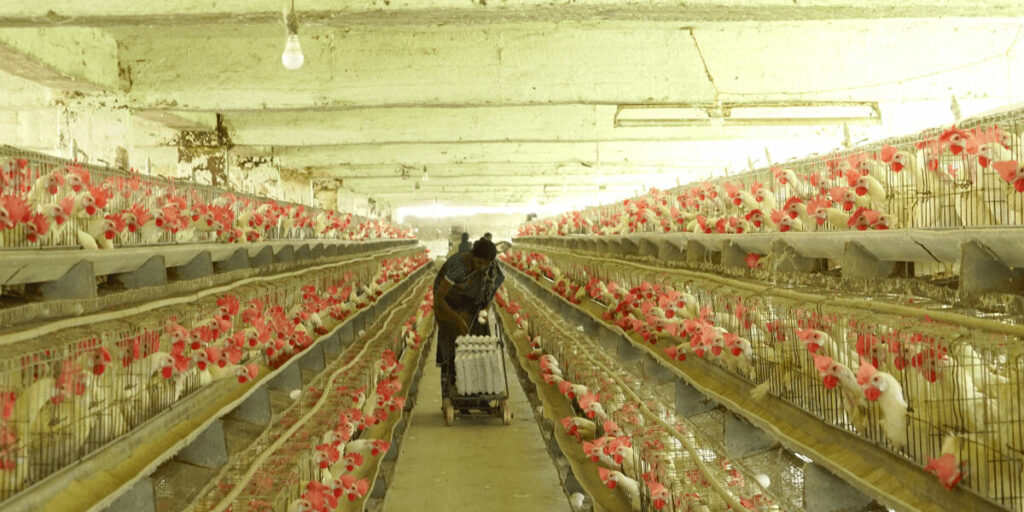
OUR INVESTIGATIONS IN INDIA
LIVE ANIMAL MARKETS IN INDIA
In so-called ‘wet markets’ or live animal markets around the world, including in India, animals from various species are sold and slaughtered on the spot while fully conscious.
Animal Equality India’s first investigation into these markets was in April 2020 –in particular in Pune, Mumbai, Goa, Calcutta and Delhi between July 2020 and July 2021– and showed that these markets are still in operation despite the impact of the COVID-19 pandemic.
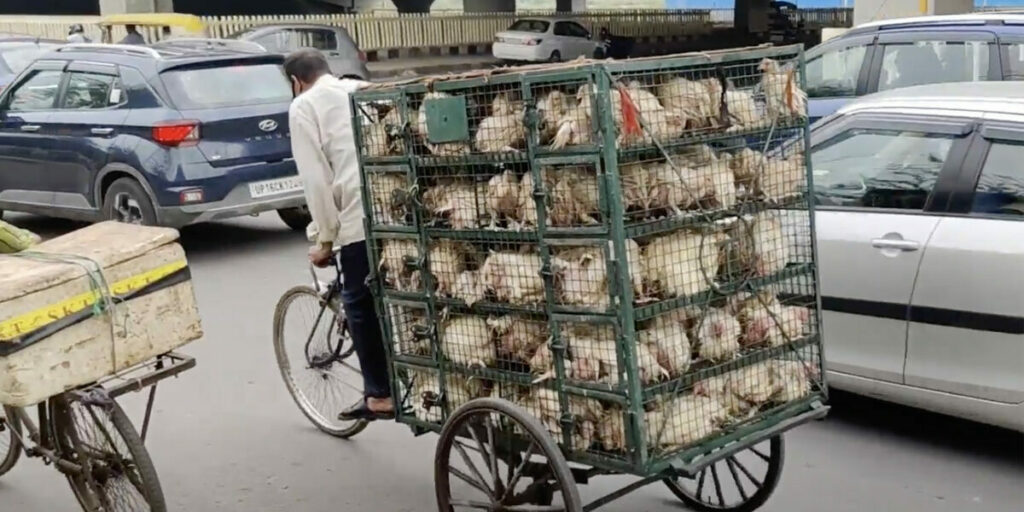
Animals are transported and confined in awful conditions and killed while they are still fully conscious.
Because of the unnatural conditions, animals in these markets experience high levels of stress, which can lead to the weakening of their immune system, making them more likely to contract diseases.
With our investigation, we also drew attention to the fact that bringing wild and farmed animals together in cramped, unsanitary cages creates an optimal scenario for the spread of zoonotic diseases such as COVID-19.
Despite the fact that the Food Safety and Standards Authority of India prohibits vendors from killing live animals on site, this practice is rampant across the country. In fact, live animal markets are still open to the public and attended by crowds of people every day.
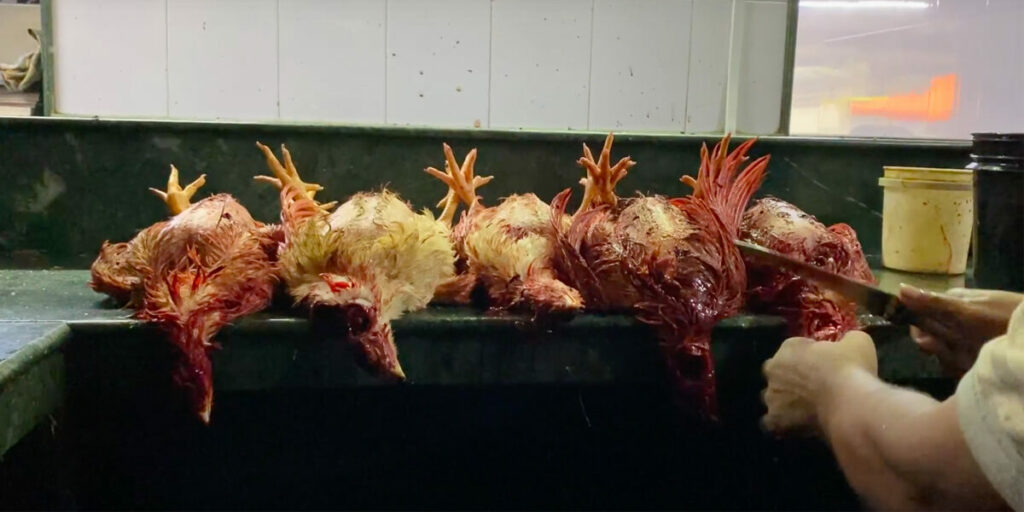
INVESTIGATION INTO INTENSIVE FISH FARMS
The demand for fish is growing rapidly around the world, drastically increasing the number of fishes who suffer on intensive farms.
India is the second largest fish producer in the world, responsible for around 6.3% of global fish production.
Animal Equality India released an investigation into the fishing and aquaculture industry that shows the terrible conditions that fish are forced to endure on intensive farms in West Bengal, Andhra Pradesh, Tamil Nadu, and Telangana, areas known for these farms.
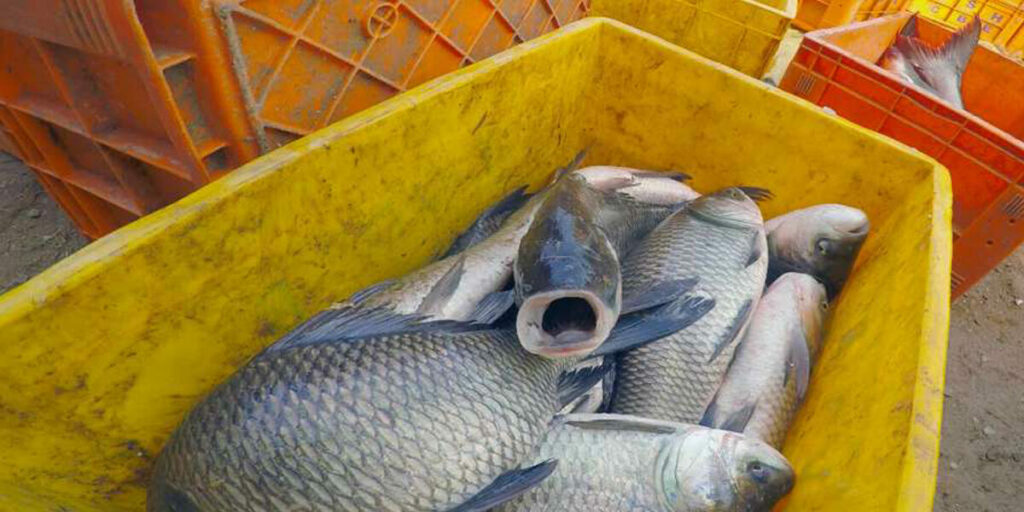
CHICKENS: A SHORT LIFE IN CONSTANT PAIN
Animal Equality in India investigated several chicken farms and meat markets between February 2019 and October 2020 in Maharashtra, Gujarat, Andhra Pradesh, and Telangana.
Chickens are given feed laced with antibiotics so that their bodies grow even faster. This leads them to suffer serious health problems due to their unnatural weight gain, so much so that they often cannot walk or reach food and water. Many chickens become sick and starve to death, while others are killed by heart attacks or respiratory infections.
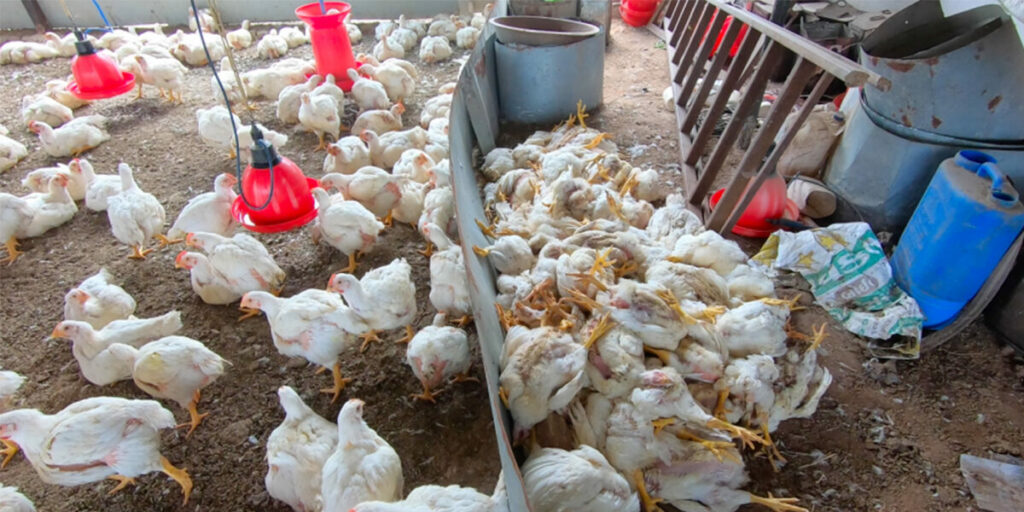
We presented our footage to the Indian Government, along with a list of recommendations to eliminate some of the worst forms of suffering for chickens.
These include mandatory stunning prior to slaughter and the introduction of technology which allows chicks’ sex to be determined before they have hatched – which would spare more than 180 million male chicks from being killed by suffocation or grounded up alive each year. Animal Equality also requested the formation of a committee to monitor animal welfare for every district in the country. Although these measures would not end cruelty to chickens, they would be a step forward in reducing their suffering.
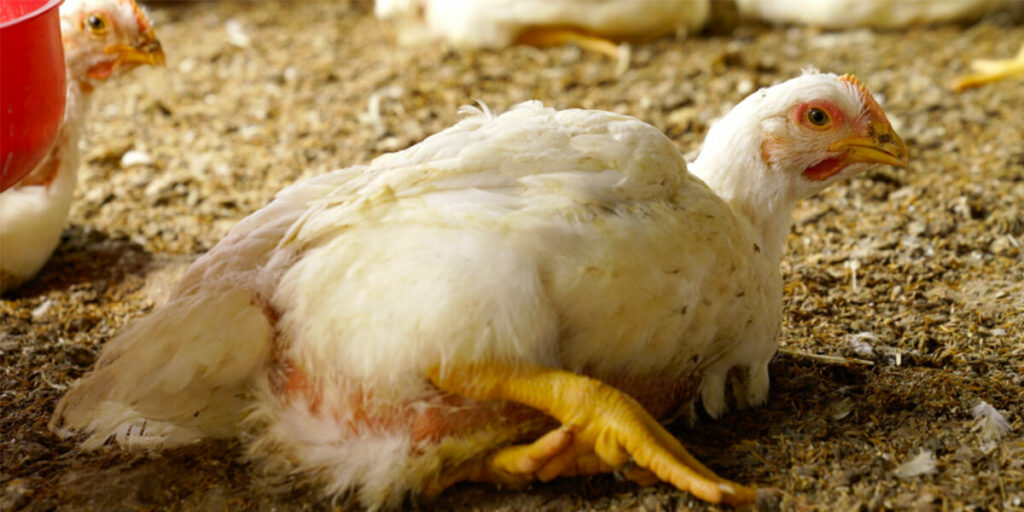
HENS ARE CONFINED IN CAGES THEIR ENTIRE LIVES
Animal Equality India has presented an investigation into several hen farms covering the entire cycle these animals are subjected to, from the day they are born until they end up on consumers’ plates.
Hens raised for eggs are confined in overcrowded cages, which are usually stacked on top of each other, causing urine and feces to fall on the birds in the lower cages.
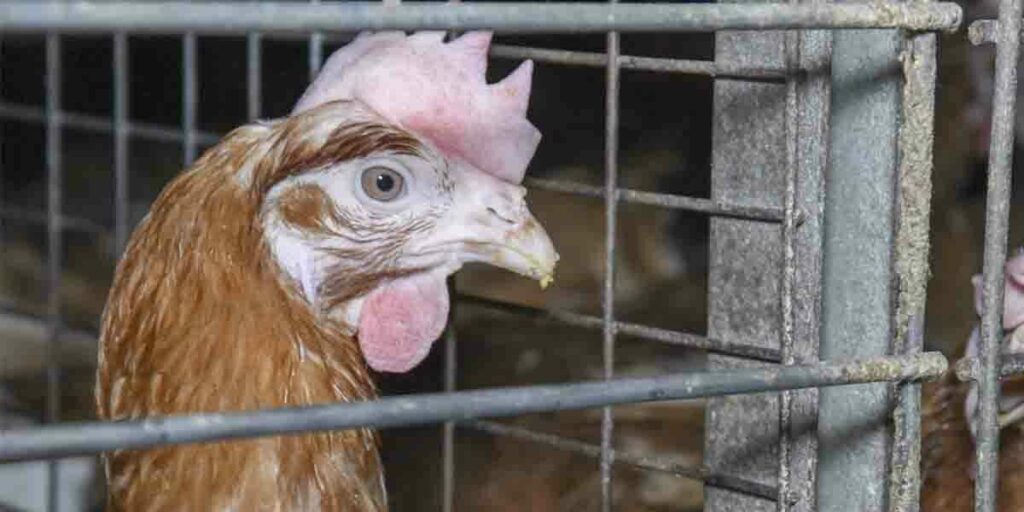
These battery cages are in common use despite the fact that the Prevention of Cruelty to Animals Act of 1960 prohibits confining birds in these conditions, and the Animal Welfare Board of India has demanded that they are phased out by 2017 in all Indian states.
The investigation contributed to India’s legislative committee proposing new laws to end some of the very worst practices. Among other things, the measures include prohibiting the creation of new battery cage farms and making veterinary care mandatory.
BUFFALO MARKETS
Animal Equality visited animal markets in seven different states in India, and in all of them, we documented the mistreatment animals.
At these markets, male calves are sold for slaughter, while cows and buffaloes used for their milk are sold for slaughter when they become what the industry deems unproductive. While the animals await their death, they are deprived of food, water and shelter. Not only that, they are also kept tied up and often abused.
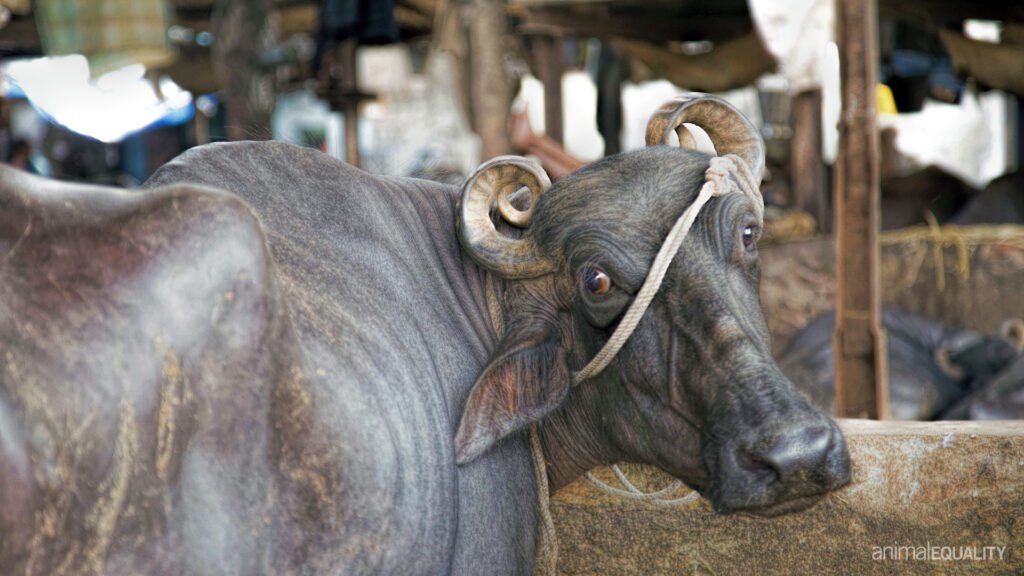
At these markets, animals are tortured in many ways: prodded with sticks, having their tails twisted and broken, being dragged by their tails and noses. All this before they even reach the slaughterhouse.
Animal Equality submitted a detailed report including a list of recommendations to the Indian government, some of which have now become part of the official regulations for animal markets.
THIS IS HOW INDIA BECAME THE TOP MILK-PRODUCING COUNTRY IN THE WORLD
Animal Equality in India has investigated 107 different dairy farms in states across the country. The practices we documented are unfortunately common across the country.
Our investigations demonstrate that buffaloes are often mistreated, lack any veterinary care, and are injected with Oxytocin to increase their milk production.
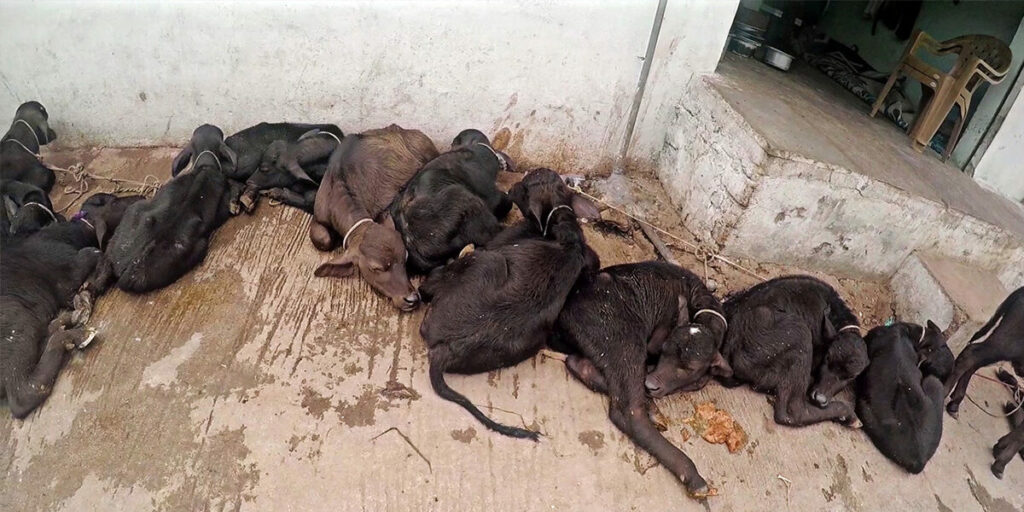
Buffaloes are repeatedly impregnated through artificial insemination and initiate lactation so farmers can take their milk. Once the calf is born, if she is a female, she will be raised for the production of milk as her mother. If he is a male, he will be separated, tied by the neck so he can’t reach her mother, and left to die in agony or sold to slaughterhouses. The procedure is repeated year after year.
Thanks to this investigation, the Indian government has issued several mandates to end some of the worst atrocities in this industry, including the introduction of sexed semen technology –which will reduce male calf slaughter–, improving the healthcare for the animals, and regulating the use of hormone drugs.
NOW IS THE BEST TIME TO SUPPORT OUR WORK!
Our work is only possible because of the support of our donors. Support our investigations and help denounce and end animal abuse.
Recommended
